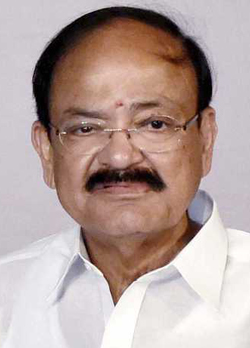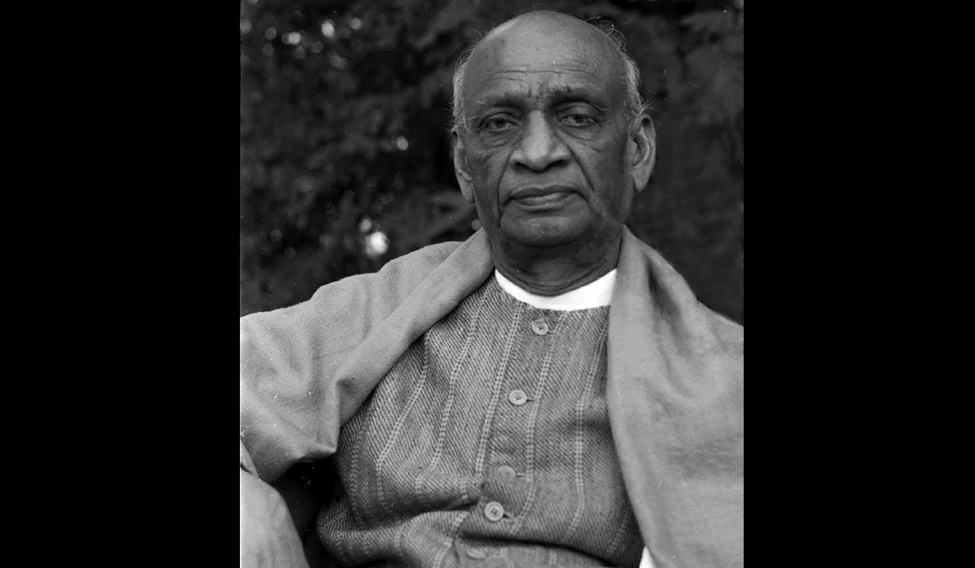No country can ignore its heroes or legendary personalities, who shaped its destiny.
 Vice President M. Venkaiah Naidu
Vice President M. Venkaiah Naidu
Sardar Vallabhbhai Patel was one such iconic heroes who shaped India’s destiny in a far-reaching way with single-minded devotion. Soon after attaining independence, he fashioned the country’s political integration with the swiftness of a military commander and deftness of a visionary leader.
Present-day India owes an immeasurable debt of gratitude to the vision, tact, diplomacy and pragmatic approach of the Sardar in preventing balkanization of the country and merger of more than 560 princely states with the Union of India in the wake of the partition of the country. What makes this stupendous integration most remarkable is that it was achieved without any bloodshed.
Adopting different approaches as warranted by the situation, he gave friendly advice in some cases, persuaded the rulers to see reason in others and even used force as in the case of Hyderabad. When one looks back after so many years, what strikes us as remarkable is the fact that Sardar Patel achieved a unified India at a time when the rulers of the princely states were given the option of joining either India or Pakistan or remaining independent.
Soon after independence, the Nizam of Hyderabad nurtured ambitions to remain independent and issued a firman to this effect. At the same time, he let loose razaakars and even toyed with the idea of merging Hyderabad with Pakistan, although there was no geographical continuity. Similarly, Travancore declared that it would remain independent and the Nawab of Junagarh announced accession to Pakistan.
After securing the accession of Junagarh, in a deft and swift action code named ‘Operation Polo’, Hyderabad was integrated with the rest of India in just four days. The popularly described ‘police action’ to liberate and integrate Hyderabad commenced its operations on September 13 and ended on September 17, 1948. Every year, September 17 is celebrated as ‘Hyderabad Liberation Day’ by many sections in Hyderabad and in some areas of Maharashtra and Karnataka, which were parts of the erstwhile Hyderabad State.
In a truly masterful display of statesmanship, Sardar Patel ensured a smooth integration of the troubled domains by not allowing the situation to deteriorate into civil unrest. There was neither bloodshed nor any kind of rebellion as he went about the task of building a strong India with a missionary zeal.
After he was made in-charge of the states department, he emphasised that “the safety and preservation of these states as well as of India demand unity and mutual cooperation between its different parts… By common endeavour we can raise the country to a new greatness while lack of unity will expose us to fresh calamities”, he cautioned.
Undoubtedly, Sardar Patel was the greatest unifier of India. Perhaps, there is no parallel in modern history to what was achieved by him. Acknowledging the monumental contribution of Patel in nation building, Pandit Jawaharlal Nehru had this to say: ‘History will call him the builder and consolidator of new India’.
His biggest asset was his down-to-earth disposition. He exemplified what the Father of the Nation had said about leadership: “I suppose leadership at one time meant muscles: but today it means getting along with people”.
After returning to India on completion of his barrister study in England, Sardar Patel gradually gravitated towards Mahatma Gandhi’s unique non-violent campaign against the British rule. He became his lieutenant and was chosen by Gandhiji to lead Kheda campaign.
'Many were prepared to follow me, but I could not make up my mind as to who should be my deputy commander. Then I thought of Vallabhbhai' said Gandhiji. The trust reposed in Patel by Gandhiji did not prove to be misplaced and Sardar Patel not only became an organiser par excellence but also turned out to be a people’s leader. He earned the title of ‘Sardar’ after he spearheaded peasant’s no-tax campaign at Bardoli in Gujarat. He also led the relief and rehabilitation operations from the front when Gujarat was ravaged by floods and worked tirelessly during plague outbreak in Ahmedabad.
His vision for a unified India also saw the creation of All India Administrative Services which he described as the ‘steel frame’. In his address to the probationers, he asked them to be guided by a real spirit of service in their day-to-day administration and reminded them of the saying regarding ICS that it was neither Indian, nor civil, nor imbued with any spirit of service.
His exhortation to the probationers to maintain utmost impartiality and incorruptibility of administration is as relevant today as it was then. “A civil servant cannot afford to, and must not, take part in politics. Nor must he involve himself in communal wrangles. To depart from the path of rectitude in either of these respects is to debase public service and to lower its dignity”, he had cautioned them on April 21, 1947.
The remarks he made during the Quit India Movement are ever more relevant today. He said, “We have to shed mutual bickering, shed the difference of being high or low and develop the sense of equality and banish untouchability…We have to live like the children of the same father”.
After he passed away, The Manchester Guardian quite aptly commented on the all-important role played by him during the freedom struggle and subsequent to attaining independence: “Patel was not only the organiser of the fight for freedom but also the architect of the new state when the fight was over. The same man is seldom successful as a rebel and a statesman. Sardar Patel was the exception”.
It is unfortunate that there has been no proper recognition of the monumental contribution made by Sardar Patel and his legacy in unifying the country at its most critical juncture in the history.
Finally, I would like to conclude by stressing that the invaluable contribution of Sardar Patel in building a modern and unified India needs to be remembered by every Indian as the country marches ahead as one of the largest economies in the world.
This article originally appeared in the ediotrial page of Malayala Manorama.




